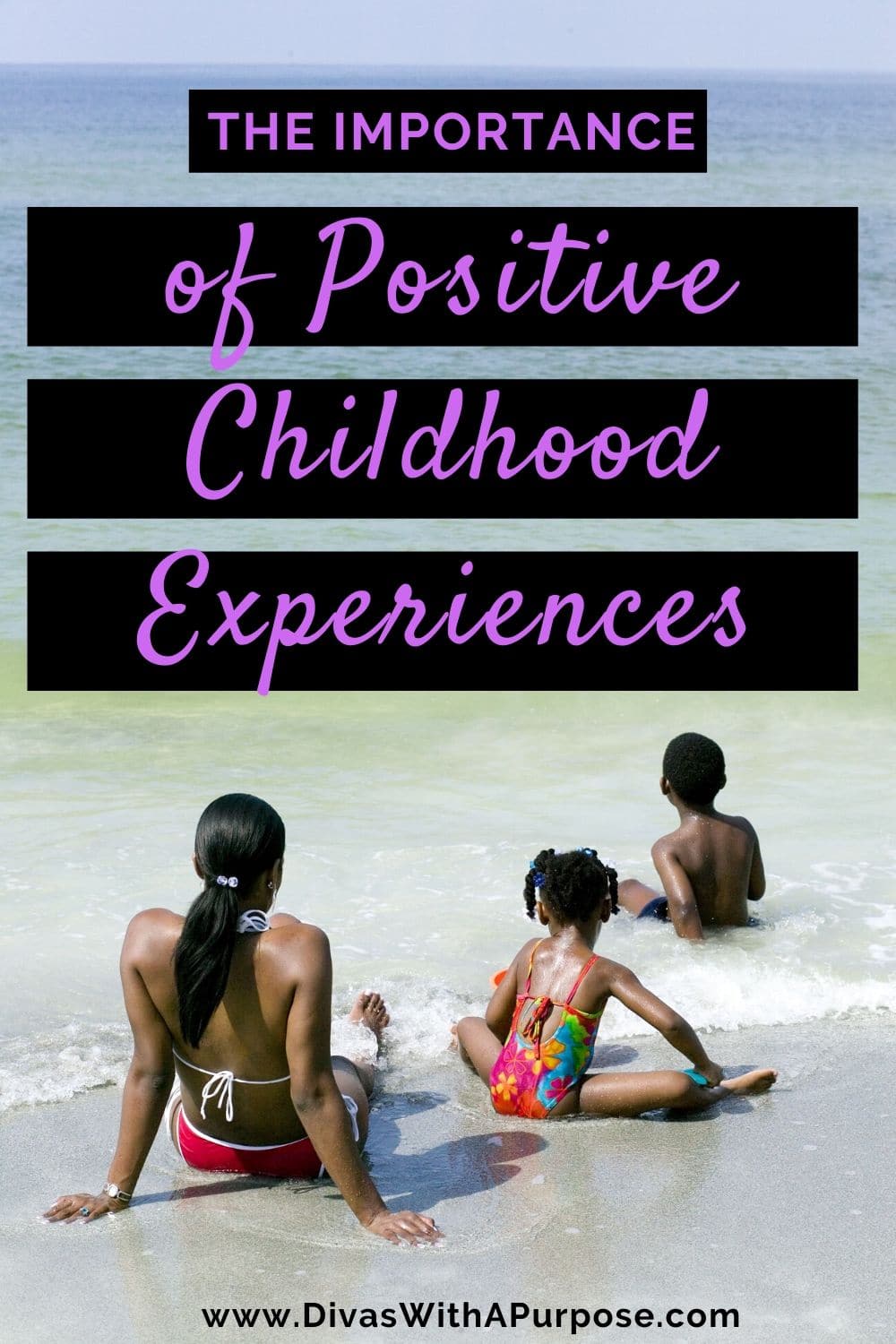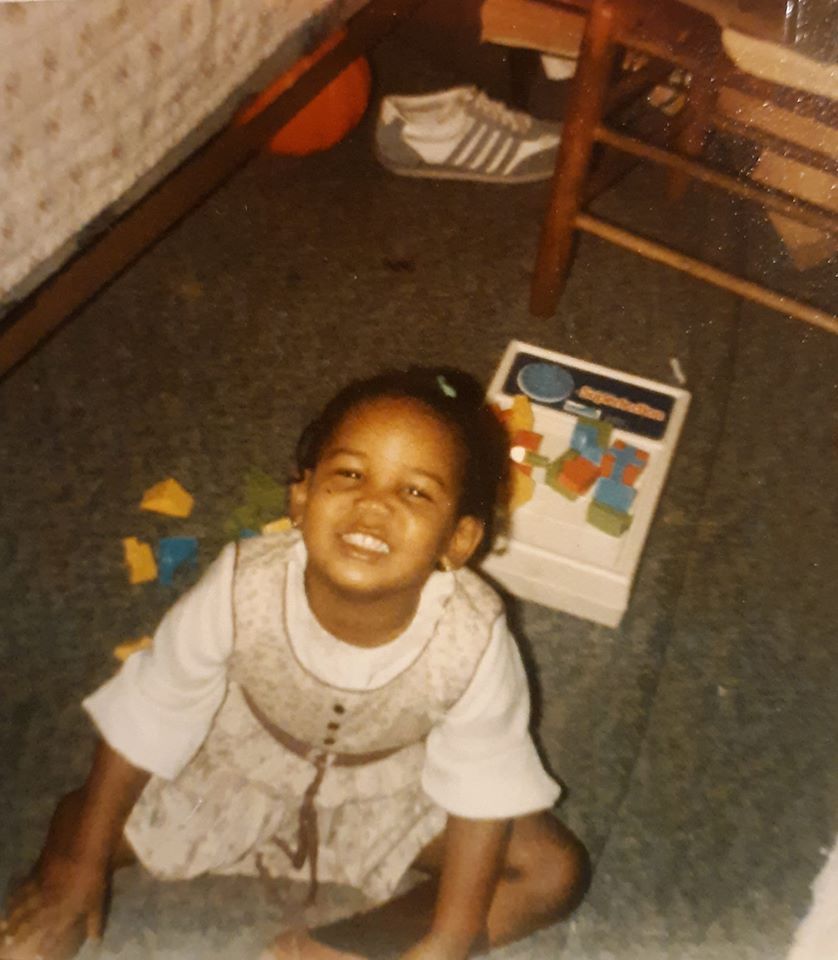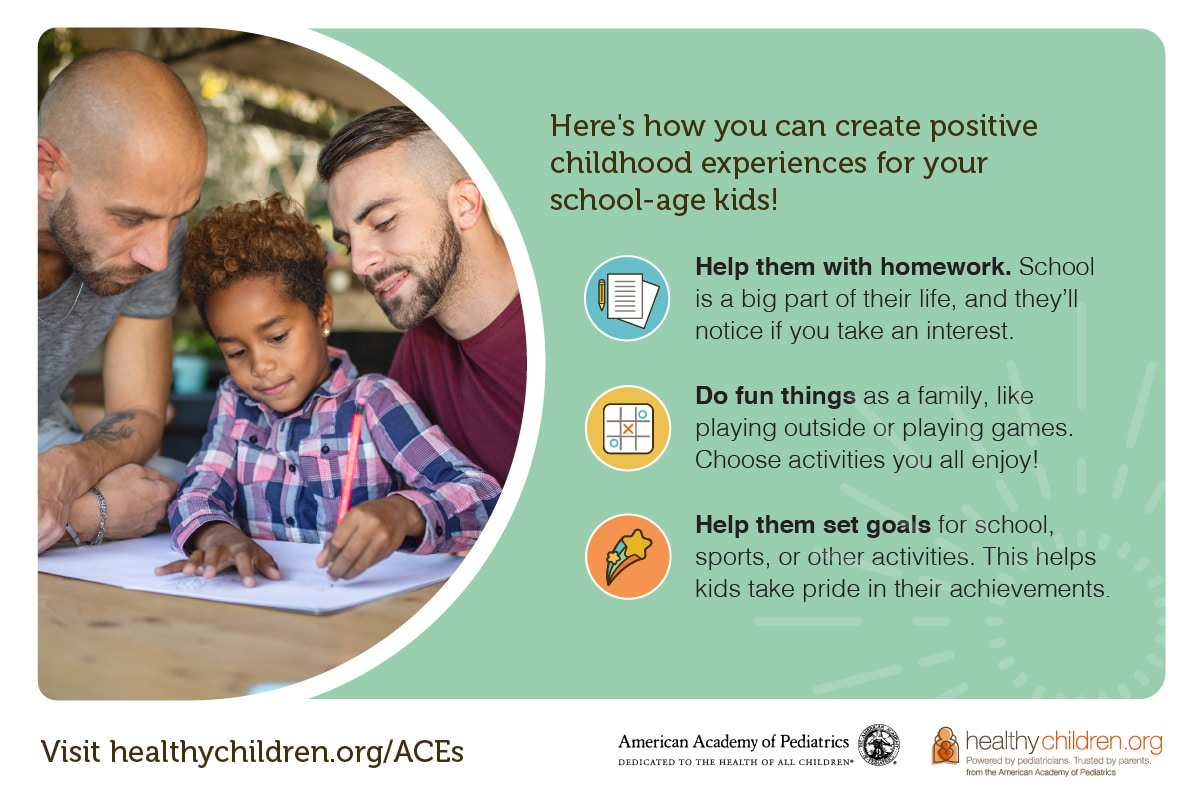The Importance of Positive Childhood Experiences
This post is made possible with support from the American Academy of Pediatrics through a cooperative agreement with the Centers for Disease Control and Prevention. All opinions are my own.
Throughout my life I have been blessed to have some wonderful individuals around me. They have provided safe and nurturing spaces for me to heal, grow and thrive. These relationships and positive childhood experiences are vital in preventing Adverse Childhood Experiences.

What are Adverse Childhood Experiences?
[Tweet “The more Adverse Childhood Experiences (ACEs) a child experiences, the greater their risk for mental, physical and emotional problems later in life. #preventACEs #findyour3”]
Adverse Childhood Experiences (ACEs) is the term for types of adversities children may experience before their 18th birthday: physical, sexual, or emotional abuse; emotional or physical neglect; mental illness in household; alcohol and substance use in household; witnessing intimate partner violence in the home; having a parent or family member incarcerated; parent separation or divorce; and death of a parent or sibling. Approximately two-thirds of adults have experienced at least one ACE in their lifetime. The more ACEs a child experiences, the greater their risk for mental, physical and emotional problems later in life.
How Can We Prevent Adverse Childhood Experiences?
I have previously shared that I experienced ACEs firsthand. Much of my adult life has been spent healing and reshaping negative thoughts from those experiences. Looking back, I can identify specific adults that made a difference with their time and presence in my life. They helped to create safe, stable, and nurturing relationships and environments. That is the key to not only preventing Adverse Childhood Experiences, but lifelong health and success. Establishing that foundation provides an opportunity to thrive during their formative years.
[Tweet “Having safe, stable and nurturing relationships as a child can help #preventACEs #findyour3”]
Who provided my safe, stable and nurturing relationships?

At every stage of life, I had people around me that genuinely cared for my well-being. They loved me unconditionally and I knew it.
The Importance of Staying Connected
One of those people is my Uncle Vernon. He was a teenager when I was born and there’s not a time when I was not aware of his presence. Our relationship over the years has been … interesting, to say the least. Apparently I was not always the wonderful, loving person I am today. Darn those terrible twos and thrilling threes! A few years ago he retired from the military, but during his time serving I could always count on a “Where in the world am I?” postcard. When I had children, they were included in our guessing game, as well. Simply remaining connected and knowing that I could always count on him – even if he was halfway across the world – means the world to me.
The Importance of Positive Words
My Godmother is someone else who has been in my life since the start. She’s one of those “give it to you straight” type of people. Her words have not always been received well, but they were always what needed to be heard in that moment. She loves hard and I always feel loved and accepted in her presence. During my middle and high school years I was very self-conscious of my height and weight. I was 5′9″ by the 8th grade and less than 100 pounds until after I had my first child at 21. Nicknames like Olive Oyl (Popeye’s girlfriend), Cheerio (because I was skinny enough to hula hoop with one) and worse were the norm. After a particularly rough week of teasing, she picked me up and spoiled me rotten. We went shopping for clothing that were age-appropriate and flattered my frame. She was one of the first people that gave me direct compliments about my looks and was intentional about helping me feel beautiful from the inside-out.

The Importance of Providing a Safe Space
During childhood, safe and nurturing relationships can be found outside of your immediate family, as well. Teachers and the parents of friends are often in a place to step in. My best friend’s mother is one of those people, for me. Bestie and I met in four-year-old kindergarten. Her mom has always greeted me with a big old hug and smile. She still has my 18-year-old son’s baby picture on her refrigerator. Throughout the years she has checked in on me and I’ve always just known that she was there for me if and when I needed her. Growing up I was able to have conversations with her that I did not feel comfortable having with my own mother. This was a life-saver when dealing with grief and depression after the back-to-back deaths of a little cousin, my great-grandmother and my favorite great-aunt.
Finding Your Three
[Tweet “As adults it is important to let others in, be intentional about creating connections and identify three people or resources to rely on. #preventACEs #findyour3”]
The need for safe and secure relationships does not end with our childhood. As adults it is important to let others in, be intentional about creating connections and identify three people or resources to rely on. Why? Our childhood experiences build the foundation for how we behave as adults. Even if we did not have the support we needed growing up, we have the opportunity to be what we did not get to others. Your three will help to create and maintain safe, stable and nurturing relationships and environments. They can be a combination of people, groups, and resources that you can lean on. My challenge to you is to determine who your three are and call on them when you need to.
While #FindYour3 is a priority, it is important to realize we all have the potential to be someone else’s trusted adult. We can create those positive relationships and experiences for a child in our life. How will you make a difference?

